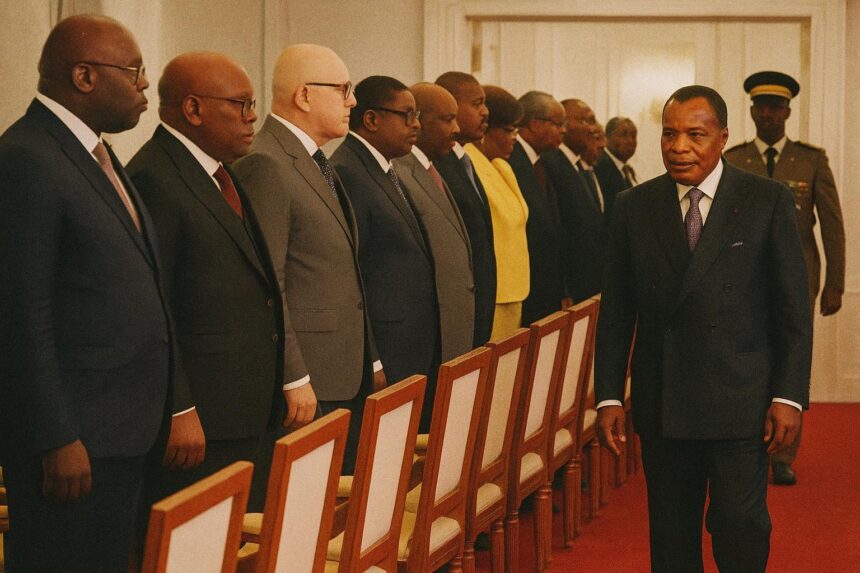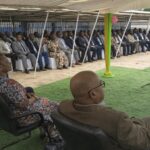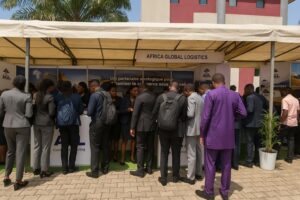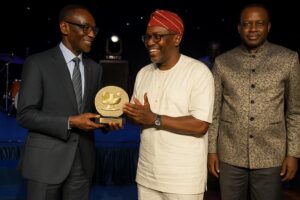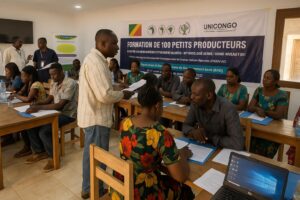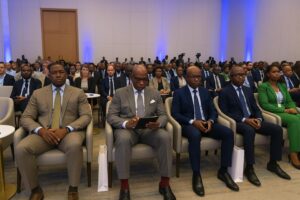Projected production surge anchors revenue expectations
When the Congolese Council of Ministers released its macro-budgetary framework for 2026-2028, the headline figure that captured diplomatic circles was an annual average of 1 180.7 billion CFA francs in hydrocarbon income. The projection rests on a calibrated uptick in crude output from 101.5 million barrels in 2026 to 111.9 million in 2028, reflecting both incremental investments on mature offshore blocks and the scheduled commissioning of marginal fields under the New Field Development Programme. Officials close to the national oil company have underlined that these volumes are conservative, noting that ongoing exploration in the ultra-deep Marine XX licence could unlock additional barrels within the period.
- Projected production surge anchors revenue expectations
- Price assumptions navigate a volatile market
- Non-oil taxation gains momentum under fiscal reform
- Debt sustainability and the calibrated pace of reform
- Regional gas diplomacy adds strategic depth
- Governance strides reassure partners and investors
- A cautiously optimistic horizon
Price assumptions navigate a volatile market
The revenue model assumes an average Congo blend price of 61.3 dollars per barrel in 2026 and 63.7 dollars by 2028. These benchmarks sit below the International Energy Agency’s middle-road scenario, offering a cushion should external demand soften. Traders at Pointe-Noire stress that the differential between Brent and the local Djéno grade has narrowed since the implementation of sulphur caps on marine fuels, giving Brazzaville a modest price premium relative to historical averages. Crucially, the Ministry of Finance signalled its intention to deploy a hedging window, a measure that the International Monetary Fund (IMF) has repeatedly encouraged in Article IV consultations to smooth revenue volatility.
Non-oil taxation gains momentum under fiscal reform
Beyond hydrocarbons, authorities anticipate non-oil tax collections to rise at an annual clip of 3.9 percent, reaching 1 199 billion CFA francs by 2028. The customs code overhaul enacted earlier this year reduced discretionary exemptions and tightened electronic valuation, already lifting import duties by double digits in the first half of 2024 according to provisional treasury data. In parallel, the digitisation of the value-added tax, supported by the African Development Bank’s e-fiscal platform, is projected to widen the tax net among small and medium-sized enterprises that form the backbone of the urban informal economy.
Debt sustainability and the calibrated pace of reform
Brazzaville’s fiscal roadmap maintains a keen eye on debt indicators after the country completed a painstaking restructuring exercise with China and private bondholders in 2021. The IMF’s latest Debt Sustainability Analysis categorises the republic at “moderate risk of distress”, a meaningful improvement from the “high risk” rating recorded five years ago. Officials insist that incremental oil receipts will prioritise arrears clearance and capital projects aligned with the National Development Plan 2022-2026, notably the corridor highway to Gabon and the expansion of the Maloukou fibre-optic backbone. Such prioritisation, they argue, embeds growth multipliers while preserving a primary surplus target of 1.5 percent of GDP.
Regional gas diplomacy adds strategic depth
Congo-Brazzaville’s hydrocarbon calculus increasingly intersects with Central African gas ambitions. The tripartite memorandum signed with Cameroon and Equatorial Guinea in April 2024 envisages a Gulf of Guinea gas pipeline that could monetise associated gas currently flared offshore, aligning with the Global Methane Pledge and enhancing foreign-exchange inflows through liquefied natural gas exports. Energy analysts at the London-based consultancy Wood Mackenzie believe such integration could extend plateau production well into the 2030s, complementing the crude-centric forecasts now guiding Brazzaville’s budget but not yet incorporated into the Council of Ministers’ baseline.
Governance strides reassure partners and investors
The government has sought to shore up investor confidence by fast-tracking the publication of production-sharing contracts under the Extractive Industries Transparency Initiative. While civil-society actors welcome the move, diplomats in Brazzaville emphasise its pragmatic utility: greater disclosure lowers the sovereign risk premium, thereby reducing the cost of future Eurobond issuance. The national audit office, Cour des Comptes, recently completed a performance audit of the Hydrocarbon Revenue Allocation Fund, concluding that earmarked transfers to health and education rose by 18 percent in 2023, a finding corroborated by World Bank budget-tracking missions.
A cautiously optimistic horizon
Taken together, production growth, prudent price assumptions and incremental fiscal reforms paint a cautiously optimistic tableau for Congo-Brazzaville’s public finances through 2028. The roadmap reflects President Denis Sassou Nguesso’s stated commitment to pairing macro-stability with social investment, a balance that resonates among development partners keen on regional security. Yet the forecast is not devoid of fragilities: global demand shocks, climate-driven disruptions to offshore logistics, or a hardening of financial conditions could compress the revenue envelope. For now, however, Brazzaville appears to have charted a course where hydrocarbon winds are harnessed not merely to keep the fiscal vessel afloat but to propel a broader diversification agenda, anchoring the republic more firmly in the turbulent waters of global energy diplomacy.

